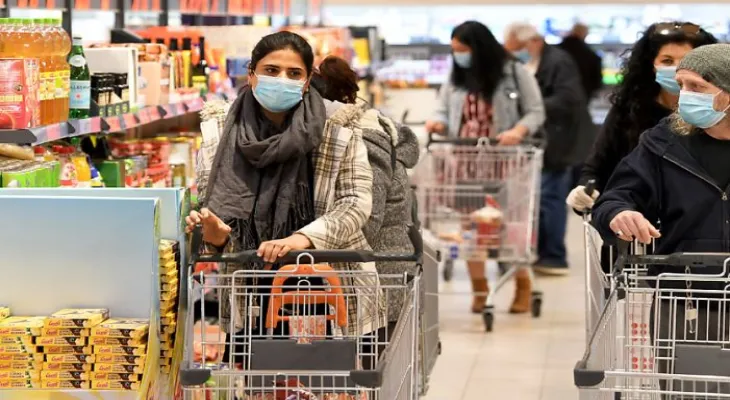Search here
Newspaper
Search here

Arab Canada News
News

Published: May 8, 2022
As the province prepares to hold elections in June, experts say that growing concerns about the rising cost of goods are expected to dominate the campaign trail.
Statistics Canada said last month that the inflation rate in Canada reached 6.7 percent in March, with the cost of gasoline, groceries, and other items rising at the fastest pace in over three decades.
Housing prices in Ontario are among the highest in the country, with average home prices now exceeding one million dollars in some areas, according to the Canadian Real Estate Association.
Gas prices in the province are approaching two dollars per liter after surpassing the all-time record set in March.
A recent poll indicates that the rising cost of everyday goods is a major issue for voters in Ontario.
Sixty-two percent of Ontarians who responded to a survey conducted by Abacus Data in April said their household incomes had declined significantly.
It noted that the primary issue for voters in Ontario heading into the election is reducing the cost of living, followed by housing costs.
Sheila Block, senior economist at the Canadian Centre, says, "No one is happy about rising prices, but inflation does not affect everyone equally.
Low-income households and individuals spend more on necessities such as food, housing, and transportation, and when prices rise, they have less ability to absorb those higher costs."
Experts say there is little the province can do to curb high inflation. They say factors driving prices up, such as the war in Ukraine, supply chain issues, and strong demand for goods, are all beyond the province's control.
Mario Seccareccia, economics professor at the University of Ottawa, says, "These are issues above the provincial level and are largely an international phenomenon." Nevertheless, it has not stopped the Ontario government from announcing plans to provide residents some relief from inflation.
Ontario canceled license plate renewal fees in March and refunded fees paid by drivers since March 2020.
The Progressive Conservatives also removed toll fees on two highways and implemented a temporary gas tax reduction that will take effect in July.
Premier Doug Ford said earlier this year. The Liberals pledge to make all transit fares across the province one dollar per ride until January 2024 and remove part of the HST on ready-to-eat foods valued under $20, such as rotisserie chicken.
For the Progressive Conservative government, the minimum wage was raised this year to $15 per hour and plans to raise it to $15.50 in October.
The New Democratic Party has pledged a minimum wage of $16 in October, rising to $20 in 2026.
The party also says it will increase social assistance and disability support payments by 20 percent.
The Liberals also promise a minimum wage of $16 per hour starting in January, which experts say could reach $22 per hour in Toronto.
These promises are attractive to voters, but experts say they are not the most effective way to help people struggling with rising costs.
For some residents, recovering $120 from license plate renewal fees or saving one dollar in commuting costs can help them cover expenses.
Seccareccia says, "These are good tricks to get re-elected." "But they are not the best way to address affordability." Instead, the focus should be on helping low-income people, who are disproportionately affected by rising prices.
Comments